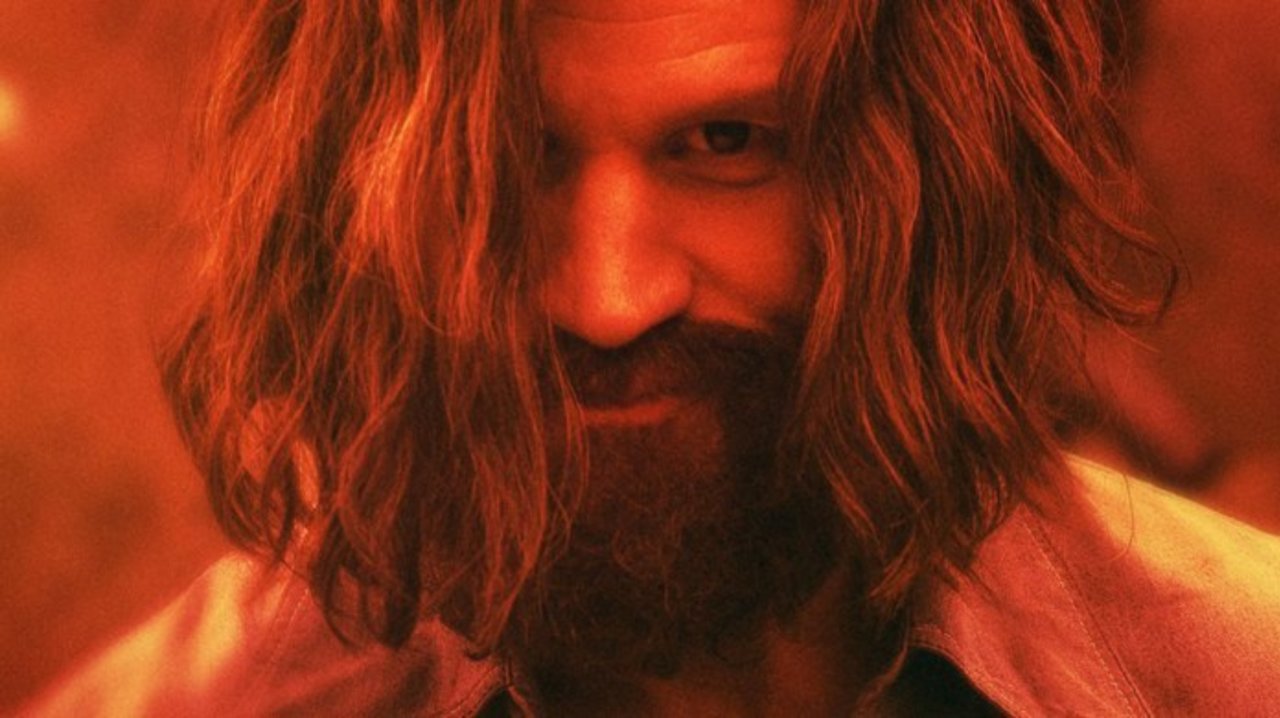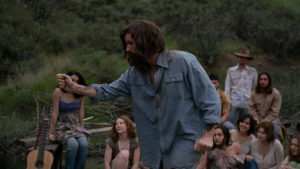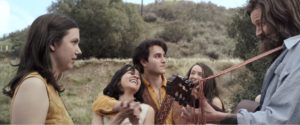Charlie Says
Mary Harron's story of the Manson Girls

Charlie Says is a biographical film of not Manson himself, but the camera’s gaze is all on the the three women sentenced to die with him. Mary Harron directs this account of the possible psychological rehabilitations by a social worker, Karlene Faith ( played by Merritt Weaver) of Patricia Krenwinkel, Leslie Van Houten and Susan Atkins all convicted of horrible, violent murders. Karlene Faith is brought in to teach the women. The film is based somewhat on the book Faith. She is fascinated by these polite, non-threatening women and the murderous rampages they each executed.

Faith’s relationship with these three women and the way she led them into some sort of reality is the real story of the film. Through half of the film we follow Leslie Van Houten from her first day with the family until that fateful day of August 9, 1969. Joan Didion‘s quote from White Album opens the film, “Many people I know in Los Angles believe the ’60s ended abruptly on Aug. 9,1969.”

When we meet Leslie “Lulu” Van Houten, played by Hannah Murray, Patricia”Katie” Krenwinkel, played by Sosie Bacon, and Susan “Sadie” Atkins, played by Marianne Rendón, they have been in jail for a few years. The death sentences for all were commuted to life imprisonment. They are isolated in three side-by-side cells away from the rest of the prison population. They have not lost a note of Manson’s murderous delusions, which they recite and reinforce together. Faith begins to unravel slowly their mind’s Manson-induced delusions. Matt Smith plays Charles Manson.
In the end we left with the same question people felt on August 9, 1969: Why do ordinary people do such extraordinarily evil things?
